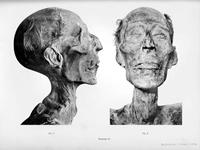An organization called Spacework is getting ready to realize one of the biggest myths of the science fiction world. During deep space journeys that will take months or even years, the human body will be kept in sleep mode for as long as desired by a method called hibernation. The process relies on slightly lowering normal body temperature to slow heart rate and blood pressure. In other words, artificial hypothermia methods will be used in space travel of the future.
It is possible to evaluate this as an exciting development in the long run. It is scientifically proven that people will have limited space during the time it takes to reach the goal, and it is scientifically proven that spending these long periods of time awake will cause serious psychological problems. For example, it is stated that a trip to Mars that will take place today will take a minimum of 6 months. During this time, the passengers stay in a narrow space in the middle of a dark space.
Sci-fi fans will remember movies that feature this type of technology. In Mr. Nobody (Mr. Nobody) and Interstellar, similar technologies allowed people to sleep for months or even years. Of course, the inspiration for this work was again scientific theories, and they were all apparently well-founded.
Spaceworks proposes using a method they call "therapeutic hypothermia," led by John Bradford. The process relies on lowering the heart rate and blood pressure by lowering the body's normal temperature (37 °C) to just below. However, the subject of hypothermia is very sensitive and body temperatures that do not fall in a balanced way can cause cardiac arrest and traumatic damage to the brain. Scientists, on the other hand, are sweating to find this subtle nuance.
Today's hibernation methods allow people to sleep for 2 to 4 days. Spaceworks, on the other hand, claims to have developed a method to extend this time to months. It will also be possible to automate the process and set the wake-up time before falling asleep.
Space hibernation systems will first be tested on NASA's employees on the International Space Station, and then on animals that will make long space journeys.


 Nielawore
Nielawore









Yorum yazmak için lütfen giriş yapınız